Full Meta Jacket: How corporations colonised queer life and what we can do about it
Big tech, especially Meta, is synonymous with queer and trans organising. Kim gets into the weeds exploring how this happened, and suggests some routes out of it including GFSC's own Trans Dimension initiative.
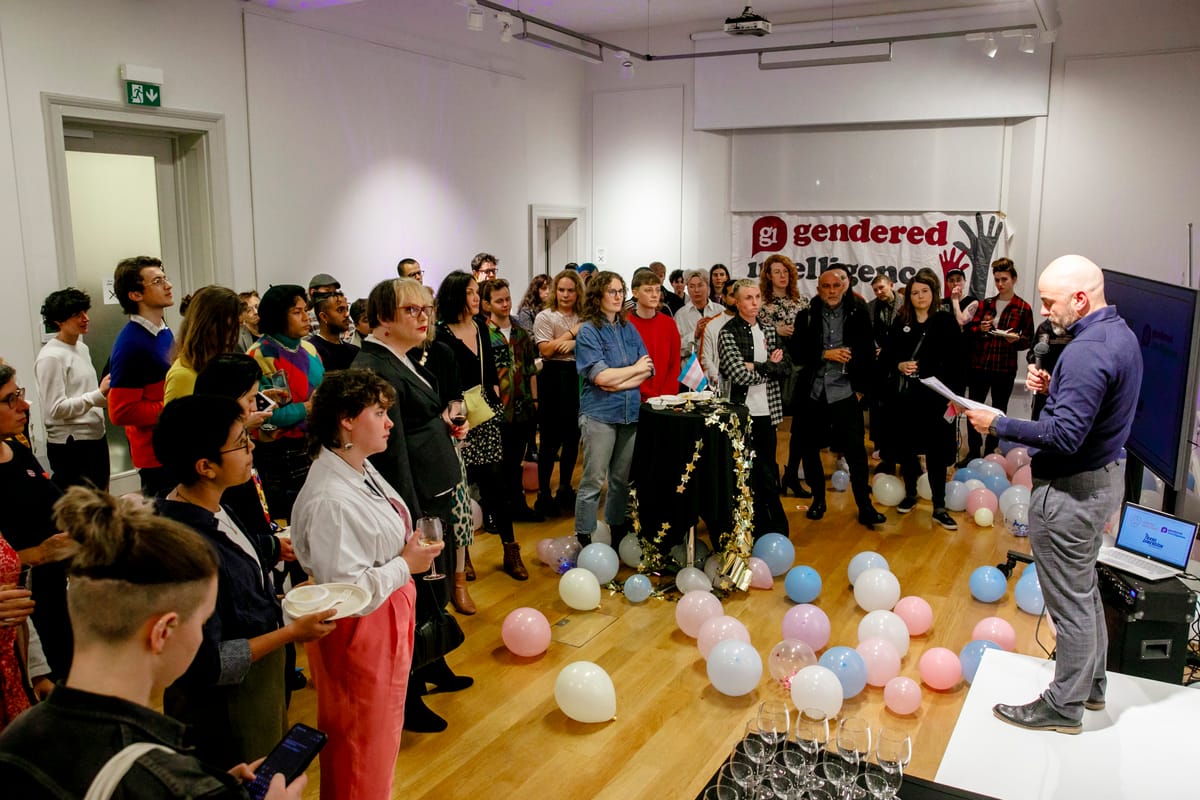
We've let big tech colonise trans and queer communities. Two decades ago we owned our community information on self-hosted web forums and platforms like Indymedia. Following a succession of apps from Livejournal to Myspace to Facebook to Instagram, now almost all our community life has been captured by surveillance, algorithms, advertising, murky content policies and is just another feature of global capitalism.
Accessing a queer or trans social life, especially for younger people, is now synonymous with Instagram and WhatsApp accounts. And for older people or just those who don't want to be on Instagram all the time, its very difficult to find out what's happening. This is resulting in siloed, highly age-stratified trans organising that is impoverishing our communities.
To be blunt: queer and trans people's entire social lives are now technologically mediated by billionaires who hate trans and queer people and make enormous political donations to make our lives worse. And those who don't want to use it can expect to get socially isolated fast.
At the same time, in part due to worsening economic conditions ushered in by big tech, community venues around us are dropping like flies. Lacking both online and offline spaces, collective action is now extremely difficult, with everyone left to fend for themselves, fighting the same fights against the same impossible economic and social conditions we now face.
Why is this a problem?
Effective coordination and communication between groups on Meta platforms is very very difficult. These platforms are designed to capture attention with a range of dark patterns, make us feel bad about ourselves (much like the beauty industry) and put ads in front of us. They are not designed to build community, allow communities to decide their own moderation policies, or provide information in open formats, or for that matter even work without an account.
The entire design of Instagram is to keep you on the platform looking at ads — seemingly “bad” design is usually a trick to keep you scrolling more or looking at more pages. For example, there's no built-in feature to publish events, so you have to keep checking back constantly to know what's on.
Perhaps even more sinister, Instagrams’ shadowban system and moderation policies prevent queer people from speaking their minds, censoring everything from pro-Palestine messages to fat positivity, for example. I did a podcast about this with the White Pube if you want to learn more. We’ve got so used to this that we’ve worked up a library of methods to sidestep these policies, but this means queers are living a precarious life, one strike from being banned from the platform forever.
Imagine a world where...
Imagine you’ve just realised you’re trans, or might be trans. For a lot of us in this room this might be so long ago we can’t remember, so it can be hard to think about.
But what do you do? You can probably find a bunch of information online, perhaps from LGBT charities, that gives generic advice, or read books, or get into it some other way. But at some point we all needed to take the plunge and get involved in something near you.
I don’t know about you but right now everything I know about the trans scene I know about via friends, mostly on Instagram, or various WhatsApp groups I’m in. How do you get started? Following Instagram accounts can potentially out you by itself if you are not in a supportive environment. And outside of Instagram it’s almost impossible to find local activity, as a huge amount of groups don’t have webpages or publicise information off the platform any more. Even when you do find something, half-dead links, abandoned facebook pages, or websites that haven’t been updated for years are the norm. We know from multiple long term studies that social isolation a real issue - as bad for you as smoking two packs of cigs a day. So this has real health implications.
What if for newly out people it was easy to find local activities and get supported to attend your first ever trans event? And what if for everyone it was easy to do all this without needed to use platforms owned by some of the worst men on earth?
How do we propose to solve this?
The Trans Dimension is our fledgeling attempt to create a national support organisation that helps grassroots trans groups begin, sustain and end by supporting and mentoring local activists to do what they do better. Those that are keeping up with the blog might note that this is a worked example of a community technology partnership.
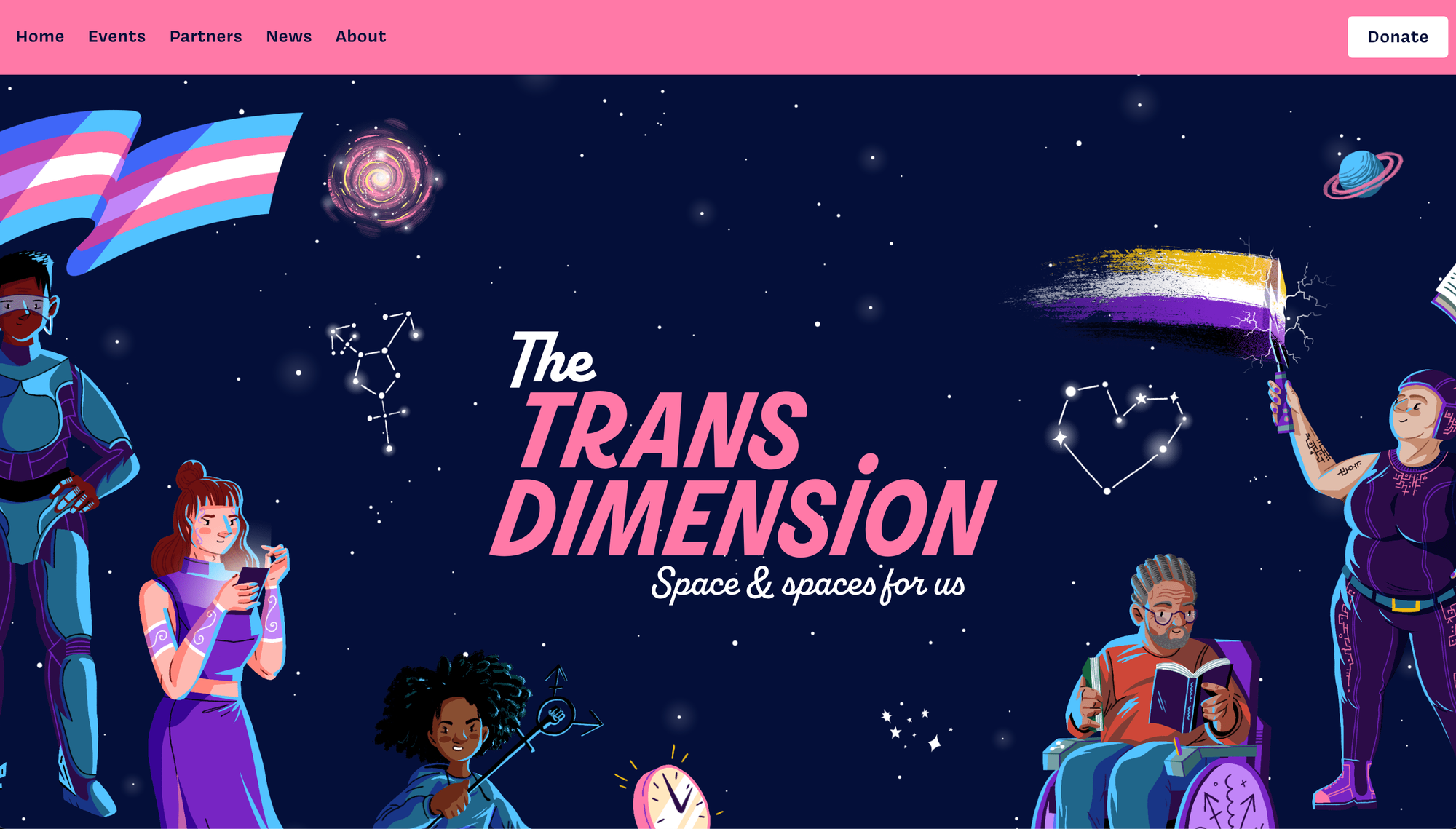
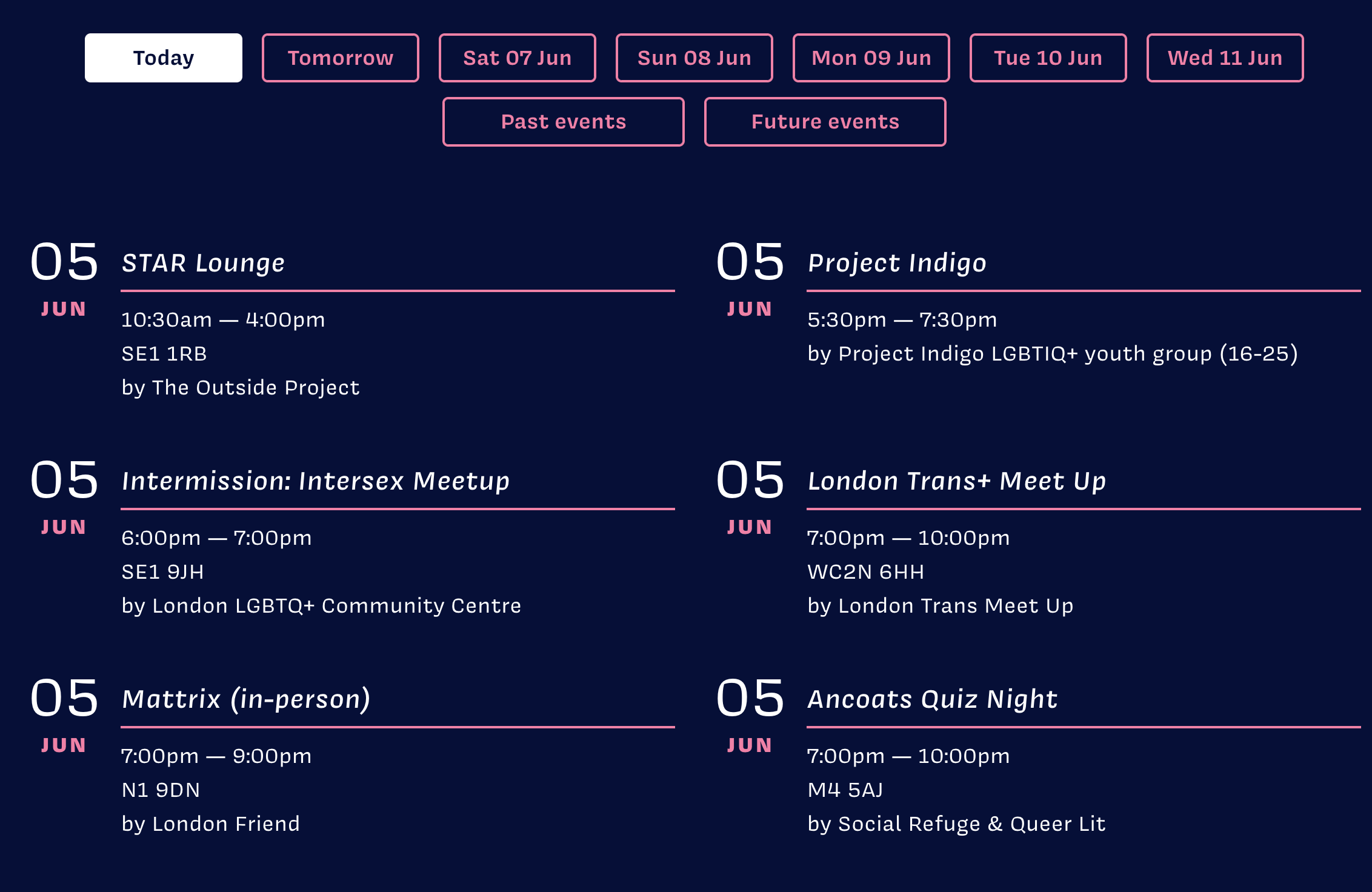
L: A screenshot of The Trans Dimension. R: Trans Dimension listings of events happening last weekend
A poll of trans people following Gendered Intelligence on Twitter found that people knew of an average 3 groups in London. Our site is now showing over 80 across Manchester and London, with dozens of events every week, and we look forward to expanding it to other cities.
The Trans Dimension works because we supported each individual group to publish information in a way that works best for them: be it Google Calendar, Outlook, Eventbrite, Outsavvy, or a WordPress plugin. Our PlaceCal tech stack then automatically aggregates and combines these to create a single list of events and partners, maintained by organisers who are already doing this work in their city.
The “big idea” is to support all the “small things" in every city and town. This means helping the 100s of groups all to be supported with basic tech infra and support. You could think of this as “yin work", a commitment to tiny things on a small scale adding up to a big thing as opposed to the more typical activist “yang work" which attempts to do one big thing nationally that has local repercussions. GFSC have distributed some funds on this basis before, and we're keen to build on this.
The key here is that information needs to be actively curated by dedicated humans, something corporate tools actively prevent, forcing everything to go through data centres maintained by people paid poverty wages in poorer countries. Instead, we centre and celebrate existing community organisers and infrastructure that already exists IRL.
It currently takes a huge amount of energy to get anything technical off the ground. Eventually you need to sort out brand, database, login, community management, social media, bank account, legal, security, and hosting. As a result most things don’t really get off the starting block, reproduce other efforts, or fold a few months after launch.
The Trans Dimension aims to create a nonprofit shared infrastructure to connect up existing offers, with the whole project owned by the community, so that we can work together on the bits we enjoy and we trust other people to handle the rest.
What are the benefits if we can get this to work?
- We can resist big tech by collectively commissioning existing open source tools that are too complicated or expensive to use individually
- Trans organisers can join a supportive network that makes it easier to start and maintain a group, and provides compassionate support to end groups or deal with disagreements
- We can support and nurture the whole ecosystem and think strategically and materially about creating a culture of cooperation and mutual trust.
- Direct action and protest work can be zero-sum, draining, stressful, and create burnout. By focussing on place-based support we can create the conditions for us to live happy, health and connected lives despite our enemies.
- Collective fundraising. With a clear place to donate, people can easily donate to trans organising efforts near them that otherwise wouldn’t have capacity to fundraise
How can you help?
Want to help? We'd love your support. You can support The Trans Dimension by getting a paid subscription to the blog, or through the dedicated donation page (it all goes to the same place!).
We also welcome people interested in rolling out The Trans Dimension in their town, or helping out on the code base which is in Rails and Elm. In both cases please join our Discord and say hi and we can connect you up.
Thanks to Ava and Kevin for their support and input into this piece, and Ben for the incredible title.

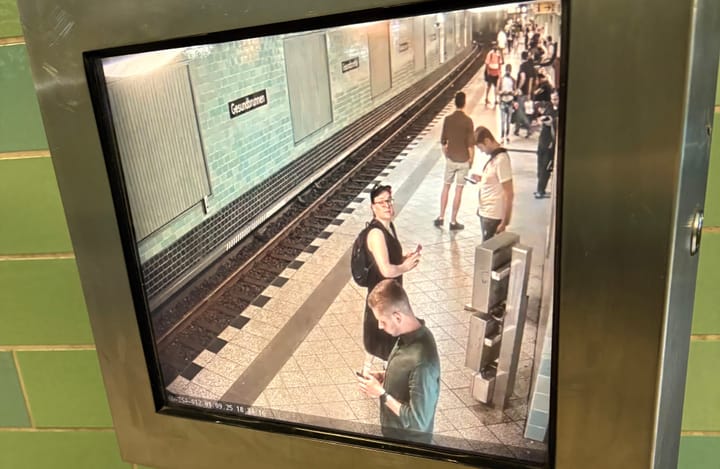

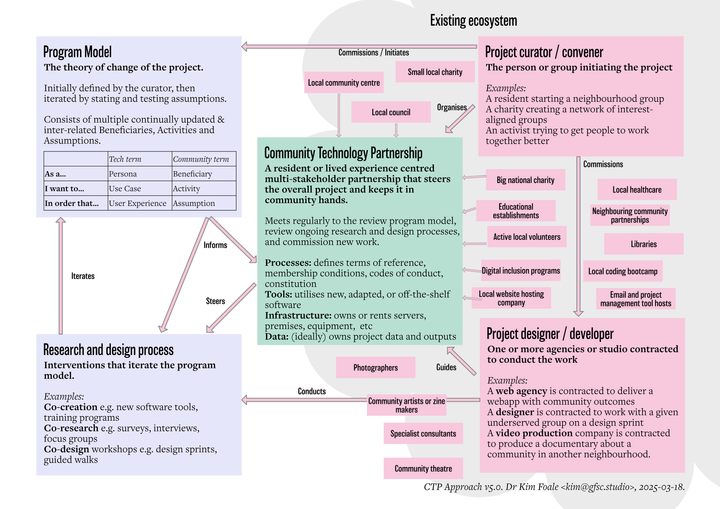
Comments ()